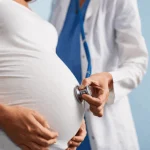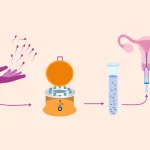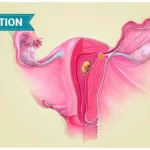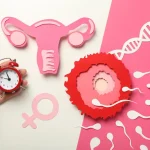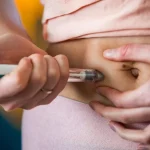IVF Egg Retrieval: What Day Does It Typically Happen?
One of the most common questions people ask when starting fertility treatment is, “On which day is egg retrieval done in IVF?” Understanding the timing of this crucial step helps reduce anxiety and gives you a clearer idea of what to expect during the IVF journey.
Egg retrieval, also known as oocyte retrieval or egg collection, is a key stage in the IVF process, when mature eggs are collected from the ovaries for fertilization in the lab. The timing of this procedure is critical, as it’s based on how your body responds to fertility medications and how your eggs mature during stimulation.
In most IVF cycles, egg retrieval happens about 10 to 14 days after starting ovarian stimulation injections. However, the exact day varies depending on your body’s natural response and your clinic’s personalized treatment plan.
This article explains how egg retrieval works, how doctors determine the best timing, and what you can expect before, during, and after the procedure.
Understanding the IVF Process Leading Up to Egg Retrieval

Before egg retrieval takes place, several important steps happen during the IVF process. Here’s a simplified breakdown:
- Ovarian Stimulation
You’ll begin taking fertility medications (usually daily injections) that encourage your ovaries to produce multiple mature eggs. Normally, a woman releases just one egg per cycle, but IVF aims to stimulate several to increase the chances of fertilization. - Monitoring and Ultrasound Scans
Throughout the stimulation phase, your fertility team closely monitors follicle growth through ultrasound scans and blood tests. These tests help measure estrogen levels and track how quickly the follicles (which contain the eggs) are developing. - Trigger Shot Administration
Once your follicles reach the ideal size, usually around 18–20 mm in diameter, your doctor will instruct you to take a trigger shot. This injection contains hormones such as hCG or leuprolide acetate, which finalize egg maturation and prepare them for collection.
So, On Which Day Is Egg Retrieval Done in IVF?
Egg retrieval typically happens 34 to 36 hours after the trigger shot is administered. This timing is crucial, as it allows the eggs to mature but ensures they are collected before ovulation occurs naturally.
The exact day of retrieval depends on how long it takes your follicles to mature during stimulation, which is usually 10 to 14 days after starting fertility injections.
Here’s a general timeline example:
| IVF Phase | Timeline (Approximate) |
| Start of ovarian stimulation | Day 2–3 of the menstrual cycle |
| Monitoring and dosage adjustments | Days 5–10 |
| Follicles mature and trigger shot given | Days 10–12 |
| Egg retrieval procedure | Days 12–14 |
Your fertility specialist will personalize this schedule based on your hormone levels, age, and how your body reacts to the medication.
What Happens During the Egg Retrieval Procedure?
Egg retrieval is a minor surgical procedure performed under light sedation or anesthesia, meaning you’ll be asleep and feel no pain. The entire process usually takes 15–30 minutes.
Here’s what happens step by step:
- Preparation and Anesthesia
You’ll be asked to fast for several hours before the procedure. Once in the procedure room, you’ll receive a mild anesthetic or sedation. - Ultrasound-Guided Aspiration
Using an ultrasound probe inserted into the vagina, the doctor visualizes the ovaries. A thin needle is then gently passed through the vaginal wall into each follicle to aspirate (suction out) the eggs and follicular fluid. - Collection and Assessment
The retrieved fluid is immediately examined under a microscope by embryologists to identify and count the mature eggs. These eggs are then placed in an incubator, ready for fertilization with sperm.
After retrieval, you’ll rest briefly in recovery before being discharged the same day. Most people can return to light activities the next day.
How Many Eggs Are Usually Retrieved?
The number of eggs retrieved varies depending on factors like age, ovarian reserve, and response to medication.
- Younger women (under 35): 10–20 eggs on average
- Women aged 35–40: 5–15 eggs on average
- Women over 40: often fewer than 5–10 eggs
It’s important to remember that not every retrieved egg will be mature or suitable for fertilization. Typically, 70–80% of the collected eggs reach full maturity.
What Happens After Egg Retrieval?
After egg retrieval, the process moves quickly into the fertilization and embryo development stages:
- Fertilization
The retrieved eggs are combined with sperm (through conventional IVF or ICSI). - Embryo Culture
Successfully fertilized eggs develop into embryos over the next 3–5 days. - Embryo Transfer
A selected embryo is transferred into the uterus, and the remaining embryos may be frozen for future use.
During this time, you may experience mild bloating, cramping, or spotting, which are normal post-procedure symptoms.
Factors That Can Affect Egg Retrieval Timing
While most egg retrievals occur within a 10–14-day window, certain factors can influence when your doctor schedules it:
- Ovarian response: Some women respond faster or slower to stimulation medications.
- Hormone levels: Estrogen levels and LH surges are monitored to prevent premature ovulation.
- Previous IVF cycles: Past responses can help guide timing for future cycles.
- Medical conditions: Issues like polycystic ovary syndrome (PCOS) or low ovarian reserve can alter the timeline.
Your IVF team uses detailed ultrasound scans and lab results to pinpoint the best retrieval day for optimal egg quality and quantity.
Tips to Prepare for Egg Retrieval

Preparing your body and mind for egg retrieval can make the process smoother and more comfortable:
- Follow medication instructions carefully. Missing doses can affect follicle development.
- Stay hydrated and eat a healthy diet to support hormone balance.
- Avoid heavy exercise during stimulation, as enlarged ovaries are more fragile.
- Arrange a ride home after the procedure since you’ll be under sedation.
- Rest after retrieval and avoid strenuous activity for at least 24 hours.
Your care team will provide personalized pre- and post-procedure instructions to help ensure a safe recovery.
Final Thoughts
So, on which day is egg retrieval done in IVF? In most cases, it happens about 12 to 14 days after starting stimulation, and around 36 hours after the trigger shot. However, the exact timing depends on your body’s unique response and your fertility doctor’s careful monitoring.
Egg retrieval is one of the most important steps in IVF. It marks the transition from preparation to creation, where your eggs are ready to meet sperm in the lab. With proper medical guidance, this procedure is safe, efficient, and a key milestone on the journey to conception.
At The Bridge Clinic, we specialize in evidence-based IVF procedures tailored to each patient’s unique fertility journey. From ovarian stimulation to egg retrieval and embryo transfer, our expert team ensures precision, comfort, and the highest chance of success.
Contact The Bridge Clinic today to schedule a consultation and learn how our IVF services can help you achieve your dream of parenthood.
Follow us on our social media channels below:
Explore our related articles below:




